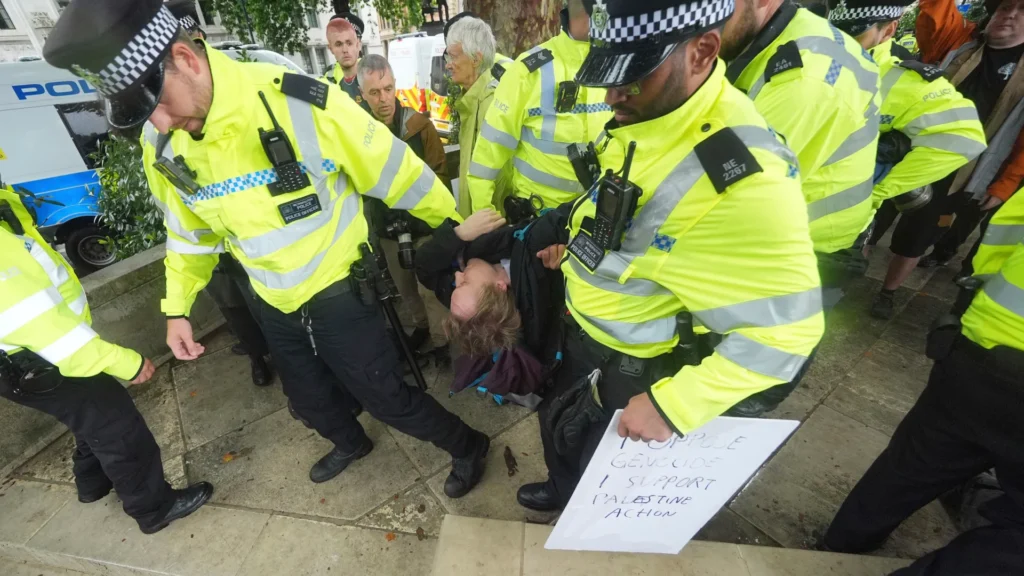British police arrested 55 people on Saturday during a rally in support of the recently banned activist group Palestine Action outside the UK Parliament. The arrests were made in Parliament Square, where demonstrators gathered waving placards and wearing keffiyehs, a symbol of solidarity with Palestinians.
According to the Metropolitan Police, the protestors were supporting Palestine Action, a group proscribed earlier this month under the UK’s anti-terrorism laws. The Home Office’s decision to classify the group as a terrorist organisation means that membership or active support now carries a penalty of up to 14 years in prison.
The rally, held just steps from the seat of British power, was closely monitored by officers. Attendees were seen being escorted into police vans after refusing to disperse. The force said that individuals were detained under suspicion of breaching the new law.
Palestine Action has gained notoriety in recent years for its direct action protests targeting British companies with links to the Israeli defence industry. The tipping point for the government’s ban reportedly came after some members broke into a Royal Air Force base and damaged military aircraft to protest the UK’s military cooperation with Israel.
Critics argue that the ban is an attack on free expression and protest rights. Palestine Action described the move as “authoritarian” and announced it will challenge the proscription in the High Court on Monday. Human rights organisations have also raised concerns about the implications for civil liberties, particularly for political dissent surrounding the ongoing Israel-Gaza conflict.
Since the escalation of violence in Gaza, Palestine Action and other activist groups have intensified their protests, focusing on British defence and technology firms they accuse of supporting Israeli military operations. This has led to numerous arrests at demonstrations across the country.
The UK government defends the ban as a necessary measure to maintain public safety and prevent illegal actions disguised as protest. However, Saturday’s arrests mark a new chapter in the debate over how far the state should go in limiting activism in the name of national security.
As the High Court challenge looms, the clash between protest rights and public order is set to take centre stage in British politics once again.

